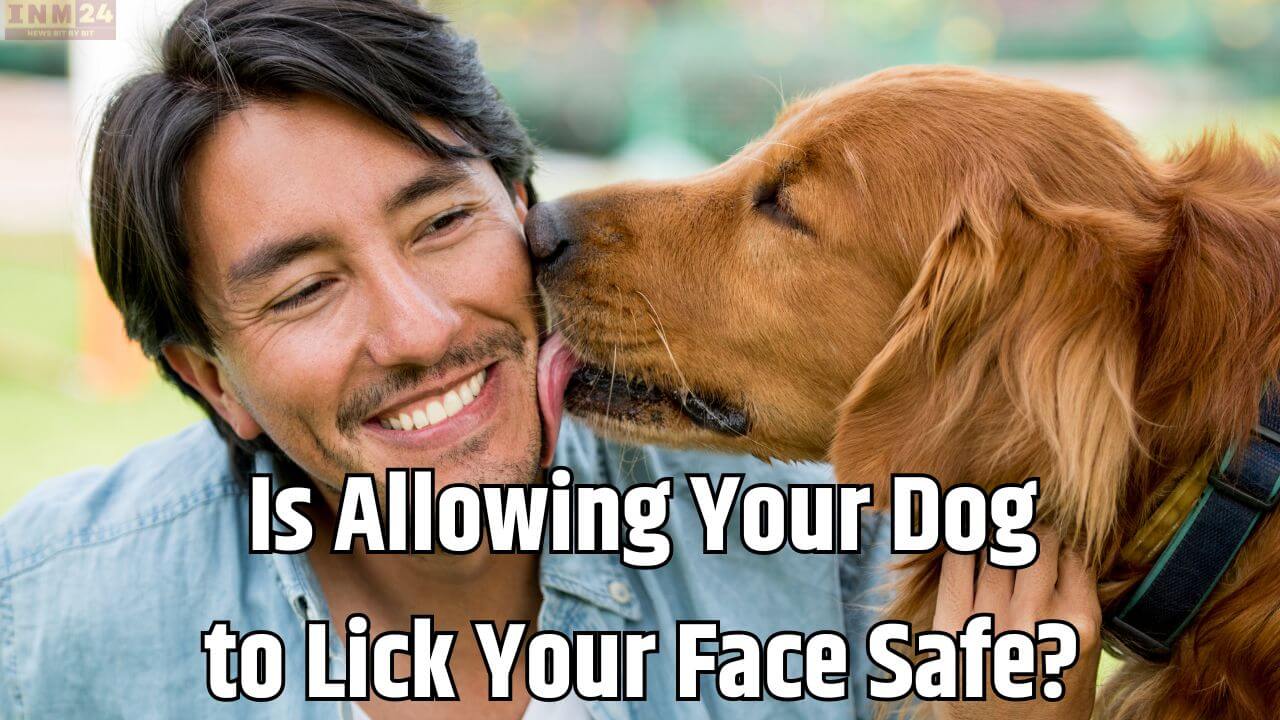Dogs are often seen as beloved members of the family, showered with affection and love from their human companions. During these moments, they often reciprocate by licking the faces of their family members as a display of affection. While many people find this endearing, it’s important to understand the potential effects of allowing dogs to lick faces.
The Heartwarming Scene
For those who own dogs, the joy of being welcomed home by a furry friend eagerly wagging its tail and licking their faces knows no bounds. Some people may not mind their dog’s affectionate licks and even encourage it, viewing it as a natural display of love and bonding. However, it’s worth considering what your dog may have been up to all day. What have they eaten? Where have those paws been? And are those adorable kisses still as harmless as they seem?
The Significance of Licking for Dogs
Licking is an important behavior for dogs. It’s a natural instinct for them, and it serves various purposes. When dogs repeatedly lick their mouths, it can be a subtle sign of stress or anxiety. They also use licking as a way to communicate with humans, often interpreting facial expressions and reacting accordingly. Research indicates that dogs are empathetic creatures, capable of recognizing and responding to both visual and auditory cues to identify emotions in humans and other dogs. A study found that dogs tend to lick their lips more often when observing human faces expressing anger. Lip licking is a natural inclination for dogs and extends to their interactions with humans, reflecting their emotional bonds.
Is Dog Licking Safe?
Approximately half of dog owners report that their dogs have licked their faces. However, it’s essential to recognize that many dogs have dietary habits that may not be appealing to their owners. Is letting your dog lick your face truly healthy or safe? While most people love their dogs and believe that the companionship and affection they provide are beneficial for their well-being and mental health, it’s undeniable that for some individuals, the risks associated with a dog’s saliva may outweigh the benefits.
For instance, individuals with weakened immune systems, open wounds, or those who have a dog that includes fecal matter in their diet may want to avoid their dog’s licking. Additionally, there is a potential risk of infectious diseases being transmitted through a dog’s saliva. While most of the time, contact with a dog’s saliva does not make humans sick, there have been rare cases where people have become seriously ill after being exposed to a dog’s saliva. For example, Capnocytophaga canimorsus is a bacterium found in the mouths of three-quarters of healthy dogs and cats. It can cause severe sepsis. Other diseases that can potentially be spread through contact with a dog’s saliva include Pasteurella multocida, which can lead to serious infections, including meningitis. Those at higher risk for such infections include individuals with compromised immune systems, very young children, older adults, and pregnant women.
Precautions and Recommendations
For dog owners at higher risk, additional precautions should be taken. These precautions may include keeping surfaces clean, reducing environmental pollutants, and practicing careful hygiene after contact with animals. Canine saliva is recognized as a potential source of antibiotic-resistant genes, highlighting the importance of responsible antibiotic use in veterinary medicine.
A German study conducted in 2023 found that the transmission of multidrug-resistant organisms between companion animals and their owners is possible. However, the study only identified a few cases. Therefore, while owning a cat or dog may not be a significant risk factor for the transmission of multidrug-resistant organisms to hospital patients, it’s still essential to exercise caution.
While the majority of dog owners enjoy the affectionate gestures of their furry companions, it’s crucial to recognize that allowing dogs to lick faces carries some potential risks, especially for individuals with compromised immune systems or other health conditions. Responsible pet ownership involves understanding and mitigating these risks while still enjoying the many benefits that come with the companionship of dogs. By taking necessary precautions and practicing good hygiene, dog owners can continue to enjoy the love and affection of their pets while minimizing potential health risks.
